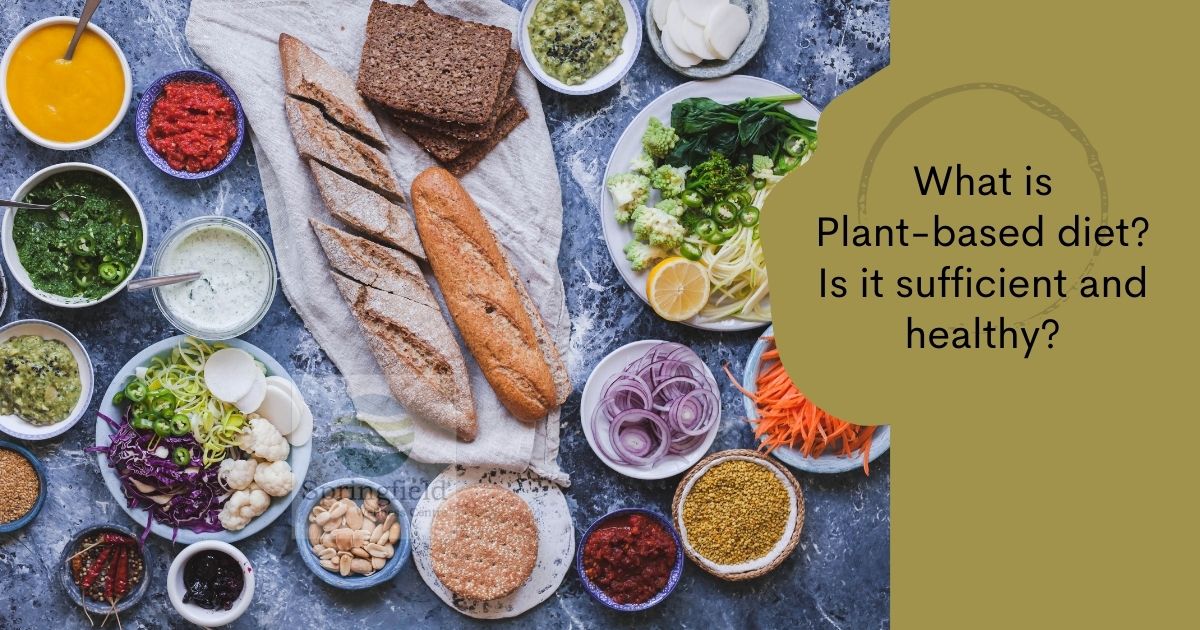What is Plant based diet? Is it sufficient and healthy?
A plant-based diet focuses on foods from plant sources only. Hence plant-based diet includes fruits, vegetables, nuts, seeds, oils, whole grains, legumes, and beans. A plant-based diet does not necessarily mean that you need to be a strict vegetarian or a vegan. It may also mean that you are choosing more food from plant sources and less from animal sources. Are plant-based diets sufficient and healthy? Let’s find out.
What does it mean to be a plant-based diet?
Plant-based refers to foods that are based on plant sources. “Plant-based” can be a term that indicates a diet pattern that is either entirely or mostly made of foods based on plant sources. This essentially can also mean that plant-based dieters can still consume certain animal-derived products.
The diets of vegetarians and vegans are strictly plant-based. While vegetarians shun meat and meat products but include dairy in their food, vegans go one step further and do not include dairy too in their diet. This is what we mean by the difference between diet patterns that are either entirely or mostly made of foods based on plant sources.
It is possible to be both plant-based and vegan. As a matter of fact, many people start out as hardcore vegans, avoiding animal products. This they do by getting attracted by animal rights campaigners. So for ethical or environmental reasons they chose to be a vegan. But most relax their strict vegan diet as years go by and then adopt a plant-based diet along with animal-derived food sources like dairy to achieve their health goals.
What is being on a largely Plant-based diet mean?
It simply means that your food is mostly plant-based for 5 or 6 days a week and consuming meat, seafood, or other animal-derived products for 1 or 2 days a week. You may observe that a typical Indian diet is largely plant-based, unlike the western diet pattern where a meat or animal-derived diet is consumed on an almost daily basis. A Mediterranean diet follows an almost similar pattern to an Indian diet. While the Mediterranean diet more of seafood, olive oil, and cheese, a typical Indian diet includes more ghee, cooking oils derived from coconut, sesame, mustard, or peanut depending on the region, paneer, seafood, and meat.
Is a Plant-based diet healthy?
Health benefits of food that is wholly plant-based and that which does not include animal source at all is typically questionable. It is a known scientific fact that proteins, minerals, and vitamins from animal sources are readily absorbed by the body than from plant sources. Take for example iron – Iron as a nutrient is present in both vegetable and animal source foods. While the iron from animal sources is referred to as heme, the iron source from plants is referred to as nonheme. Our body efficiently absorbs heme iron more readily than nonheme iron.
Many studies have shown that plant-based diets along with seafood and a moderate amount of white meat are beneficial for weight loss and aid in reducing obesity. The high fiber content of the plant-based diet, along with the exclusion of processed foods, aids in weight loss. It needs to be noted that adopting a plant-based diet but not giving up on processed food like soda, beverages, sugary drinks, etc are not beneficial at all and they are not a healthy choice.
Other Benefits of Plant-based diet
- The fiber-rich content of the plant-based diet helps in reducing constipation and hence can be effective in fighting hemorrhoids.
Adopting a plant-based diet may be an effective tool in managing and reducing your risk of developing diabetes. However, if processed food is also included in the diet the risk of developing diabetes is only worsened. - People who followed a healthy plant-based diet rich in vegetables, fruits, whole grains, legumes, and nuts had a significantly lower risk of developing heart disease.
- A plant-based diet may reduce the risk of certain types of cancers too. An interesting fact is, vegetarians who also eat seafood (Pescatarians) had the lowest risk of developing colorectal cancer.
- Diets that are rich in vegetables and fruits may help slow or prevent cognitive decline and Alzheimer’s disease in the elderly. This is because plant-based diets have a higher number of plant compounds and antioxidants that slow the progression of Alzheimer’s disease.

